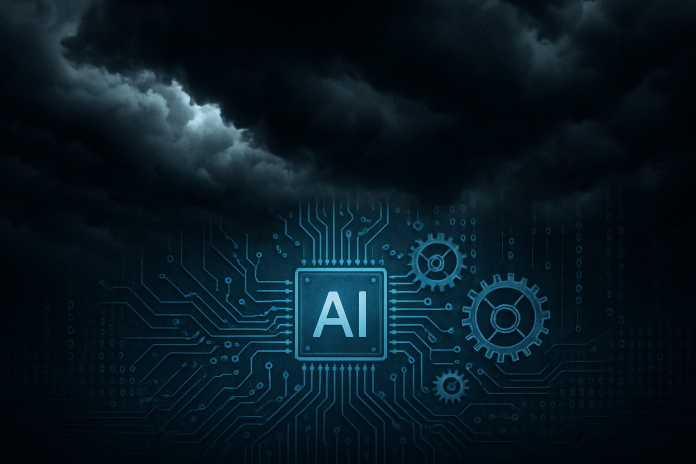Quick Take
- 97% of Australian organizations lack AI cybersecurity preparedness — Accenture report
- 80% missing essential security practices for critical asset protection
- 16% have clear generative AI usage policies
- 22% use comprehensive encryption and access controls
- AI-powered cyberattacks doubled since 2023 in state-sponsored operations
Accenture’s cybersecurity resilience study exposes critical gaps as AI threats evolve faster than corporate defenses across Australia.
Australian companies are facing a cybersecurity crisis that’s getting worse by the day. As artificial intelligence reshapes how businesses operate, it’s also creating new attack vectors that most organizations simply aren’t ready for. Accenture’s latest “State of Cybersecurity Resilience 2025” report delivers some sobering news: 97% of Australian firms remain completely unprepared for AI-related cyber threats.
The numbers paint a concerning picture. The research shows fundamental weaknesses in how companies protect themselves, with essential security practices to protect critical assets being largely ignored. Only 16% of organizations have bothered to establish clear policies for how employees use generative AI tools. Even more troubling, just 22% have implemented comprehensive encryption and access control measures.
Cybercriminals Are Getting Smarter with AI
The threat landscape has changed dramatically over the past two years. Cybercriminals are no longer just script kiddies working from their basements — they’re sophisticated operators using AI to launch attacks that would have been impossible just a few years ago. The Verizon 2025 Data Breach Investigations Report shows that AI use in cyber operations has doubled since 2023, with state-sponsored groups leading the charge.
These aren’t your typical phishing emails anymore. We’re seeing advanced malware that can adapt in real-time, deepfake technology being used to trick executives, and AI-powered social engineering attacks that are incredibly difficult to detect. Australian companies are caught in the middle of this technological arms race, and most are losing badly.
The problem gets worse when you consider internal risks. Employees across the country are using ChatGPT, Claude, and other AI tools without any real oversight or security protocols. Every conversation with these platforms potentially exposes sensitive company data, but organizations haven’t caught up with policies to manage these risks.
Security Frameworks Haven’t Kept Pace
Accenture’s research reveals a fundamental disconnect in how Australian businesses approach cybersecurity governance. Companies are eager to embrace AI for competitive advantage, but they’re treating security as something to figure out later. This backwards approach is creating massive vulnerabilities that sophisticated attackers are quick to exploit.
Cybersecurity experts have been sounding alarms about this for months. The foundational security practices that worked in the pre-AI era simply aren’t sufficient anymore. Organizations need to think about security from day one of any AI implementation, not bolt it on as an afterthought when something goes wrong.
The data shows that without proper security frameworks embedded into digital infrastructure from the start, companies are essentially leaving their doors wide open. It’s not a matter of if they’ll be breached, but when.
Industry Leaders Call for Immediate Action
Mary Attard, Accenture’s Security Lead ANZ, didn’t mince words when discussing the findings:
“This report serves as a wake-up call. Cybersecurity cannot be an afterthought; it must be seamlessly integrated into AI initiatives to foster business resilience and protect against emerging threats.”
Security professionals across the industry are echoing similar sentiments. They’re advocating for comprehensive approaches that combine technical safeguards with real organizational changes. The recommendations aren’t rocket science: implement robust security governance frameworks, establish clear AI usage policies, and invest heavily in employee training programs that focus on emerging threats.
But here’s the challenge — many organizations are still struggling with basic cybersecurity hygiene, let alone AI-specific protections. The learning curve is steep, and the threats aren’t waiting for companies to catch up.
A National Security Challenge
The scope of this problem extends far beyond individual companies. Industry leaders increasingly recognize that isolated organizational efforts simply won’t cut it against the scale and sophistication of AI-powered cyber threats. Enhanced cross-sector collaboration and information sharing have become essential components of national cybersecurity resilience.
Non-profit organizations face particular challenges in this environment. They often lack the resources for comprehensive security implementations, making them attractive targets for cybercriminals looking for easy entry points. Targeted support programs and specialized training could help bridge these critical security gaps, but coordination and funding remain ongoing challenges.
The Road Ahead for Australian Business
The message from this research is clear: Australian organizations need to fundamentally rethink how they approach cybersecurity in an AI-driven world. The old model of treating security as a separate IT function simply doesn’t work anymore.
Successful AI integration requires embedding security considerations into core business processes from the very beginning. This means establishing comprehensive governance frameworks that can evolve with the threat landscape, maintaining continuous vigilance against new attack vectors, and ensuring that every AI initiative includes security as a primary design requirement.
Companies that fail to address these fundamental requirements are setting themselves up for significant operational disruption. In an increasingly competitive marketplace, a major cybersecurity incident can mean the difference between thriving and merely surviving.
The Accenture findings serve as a critical wake-up call for Australian businesses. The time for treating cybersecurity as an optional extra has passed. Organizations need to accelerate their cybersecurity maturity alongside AI adoption, ensuring that technological advancement enhances rather than compromises their resilience in an increasingly complex and dangerous digital environment.






